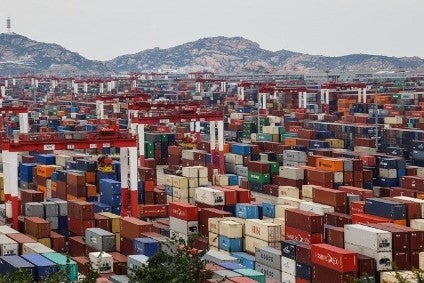
The letter comes ahead of the formal commencement of negotiations in line with the contract’s expiration on 1 July with the associations concerned the uncertainty is already disrupting freight strategies and operations on the ground.
“Pandemic-related disruptions in the nation’s supply chain have been costly and inconvenient,” said Brian Dodge, president of the Retail Industry Leaders Association (RILA). “Allowing a work slowdown or a shutdown to impact operations would amount to a self-inflicted wound, compounding congestion and leading to even higher costs on everyday products for consumers.”
Steve Lamar, president and CEO of the American Apparel & Footwear Association (AAFA), adds: “Previous labour disputes at the ports cost the US economy upwards of $1-$2bn per day. To say the stakes are even higher today is an extreme understatement, as even a short slowdown or shutdown will disrupt already fragile supply chains and compound inflationary pressure.”
The full letter reads: “The US west coast ports account for over 44% of nationwide container port traffic. The west coast is home to several key gateways that are essential to the uninterrupted flow of imports and exports, including America’s busiest port complex, in San Pedro Bay. The current global supply chain disruption—driven by several factors but chiefly related to the effects of the Covid-19 pandemic—has been especially acute among west coast ports.
“Though negotiations have yet to begin ahead of the contract’s July 1 expiration, the uncertainty is already affecting operations on the ground. Importers and exporters wary of further disruption are already adjusting freight strategies to avoid or mitigate potential impacts in order to keep goods moving as they have throughout the pandemic. These adjustments are influencing volumes and market share, with the contract expiration just months away.
Speaking to Just Style recently, industry expert Robert Antoshak said of the looming expiration of the West Coast labour contract: “There’s going to be a difficult LA port labour negotiation in the summer,” he says. “That has the potential to shut the port down if the talks don’t go well and the workers stage a walkout.”

US Tariffs are shifting - will you react or anticipate?
Don’t let policy changes catch you off guard. Stay proactive with real-time data and expert analysis.
By GlobalDataThis adds to what Antoshak calls the “unknown” that is plaguing supply chains as the pandemic continues to linger in the form of the Omicron variant, causing unforeseen logistical problems as worker shortages and port slow-downs affect both exporting and importing countries.
The industry leaders are pressing the Biden-Harris Administration to encourage and if necessary, convene the parties to facilitate negotiations.
“These efforts will benefit American importers and exporters, the tens of millions of workers they employ, and the hundreds of millions of consumers they serve. Swift action and consistent attention to this matter can safeguard our shared economic gains and protect the progress your Administration has made in addressing supply chain disruption and port congestion,” the letter reads.



